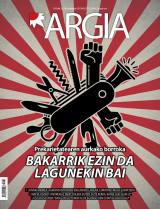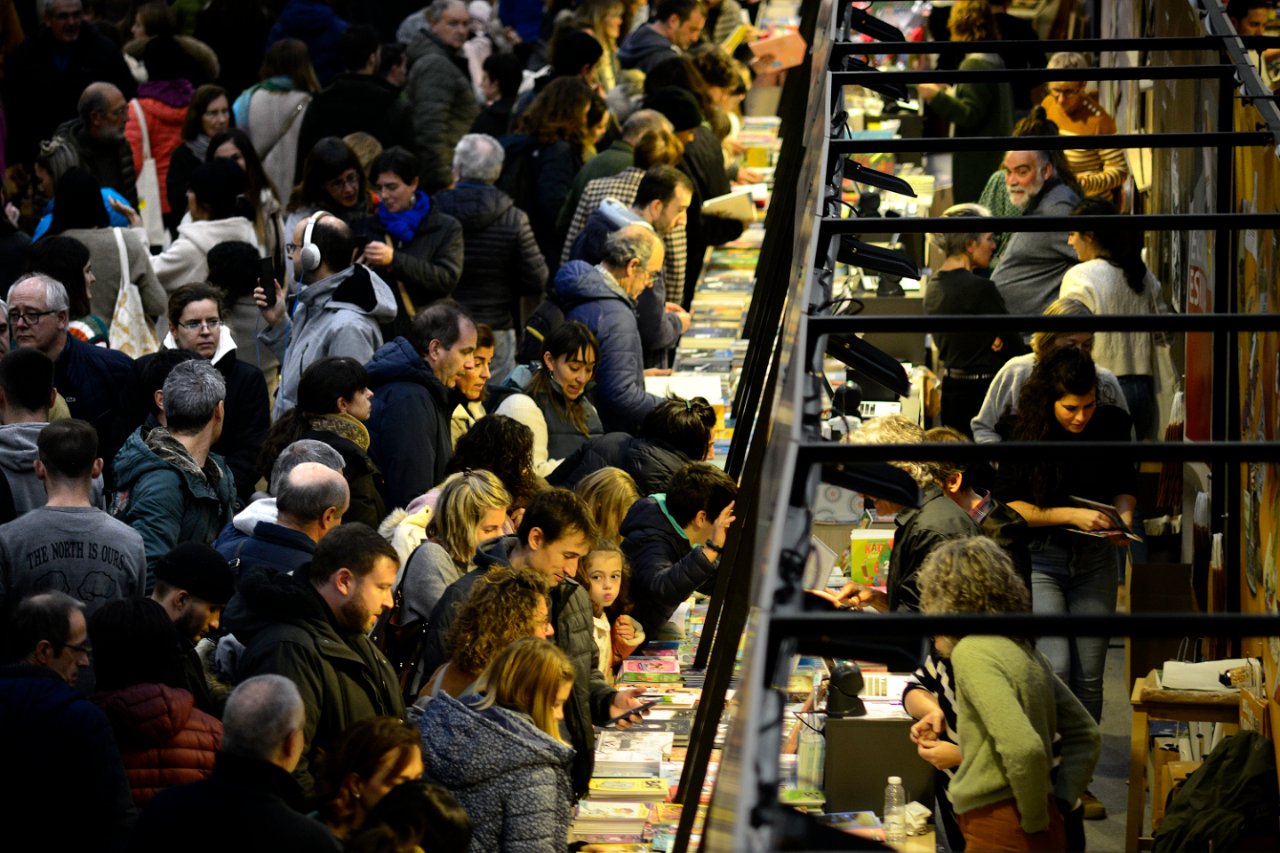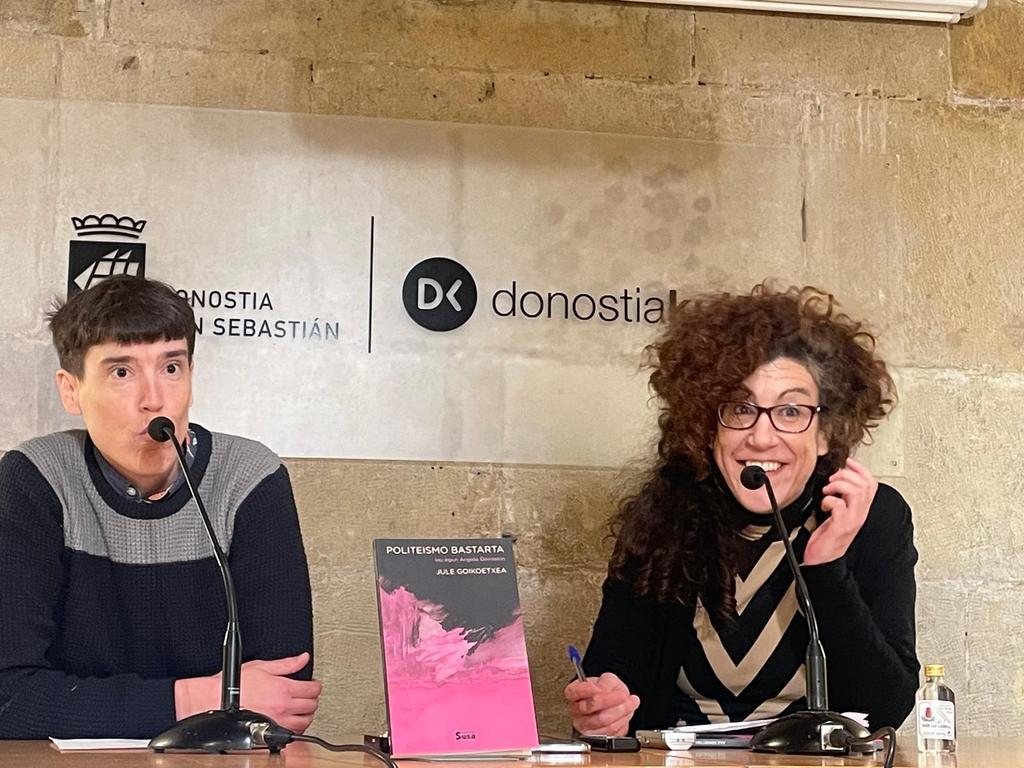Two free feathers
- Chronicle of the colloquium of the cycle "dialogues with literature". Name: Arantxa URRETABIZKAIA and Asier Serrano. When: 16 January. Where: In the library of Bidebarrieta in Bilbao.

To begin the turn of the cycle Dialogues with Literature 2018, Bidebarrieta Kulturgunea of Bilbao launched a strong bet in the January session, inviting two great authors of Basque letters: Arantxa URRETABIZKAIA and Asier Serrano, both winners of the Euskadi Prize for Literature in the form of children and youth literature. The program, moderated by Goizalde Landabaso, promised that they would talk about literary generations. But in the tertulia they jumped from one subject to another, looking at the edges of the Basque literature.
Literature and freedom, the ability to live from writing, how far is it possible in our small town? This is the question that generates expectation. The guests did not stumble upon this heavy subject: “There will be no more than half a dozen writers among us who live to write,” said Urretabizkaia, just to start. But being a writer with another work to live has advantages: literature is a space of freedom for him, as it does not depend on the need to earn money. As the daily bread is guaranteed by other ways, Urretabizkaia feels free. If it were not for that freedom, I would not write the award-winning book Bidean ikasia. Asier Serrano is a professor who likes writing and writing both: “I have a job I love, to maintain a hobby I love.”
However, Urretabizkaia recognized that if literature does not provide enough to live, having “continuity” is difficult. “Now many women are writing, but how many are left in 20 years’ time?” But in the future there will be a need for reports: “People need stories and today they receive them mainly from the audiovisual media.” Serrano agreed that “formats have changed, but writers will always be there, perhaps as creators, looking at the success of those who write series scripts in the United States.”
As the conference progressed, Serrano reported a lot of anecdotes related to his literary trajectory. After acknowledging that he “suffers a lot” by writing, he said that he would only withdraw a book from his bibliography: The Picasso horse. “It wasn’t time to say goodbye.” He then focused on freedom from a different perspective than the “crews” that are created in each generation. As a reader, you also want freedom: “I don’t like the books that tell you how you should feel in every episode, I don’t need an orchestra conductor.”
The expertise with editors, the critics... Urretabizkaia and Serrano filled the program with one and a half hours of criticism. The listeners wanted to thank the writers for the wise and sincere performance.
Joan Tartas (Sohüta, 1610 - date of unknown death) is not one of the most famous writers in the history of our letters and yet we discover good things in this “mendre piece” whose title, let us admit it from the beginning, is probably not the most commercial of the titles... [+]













ilbeltza-(1).jpg)









.jpeg)